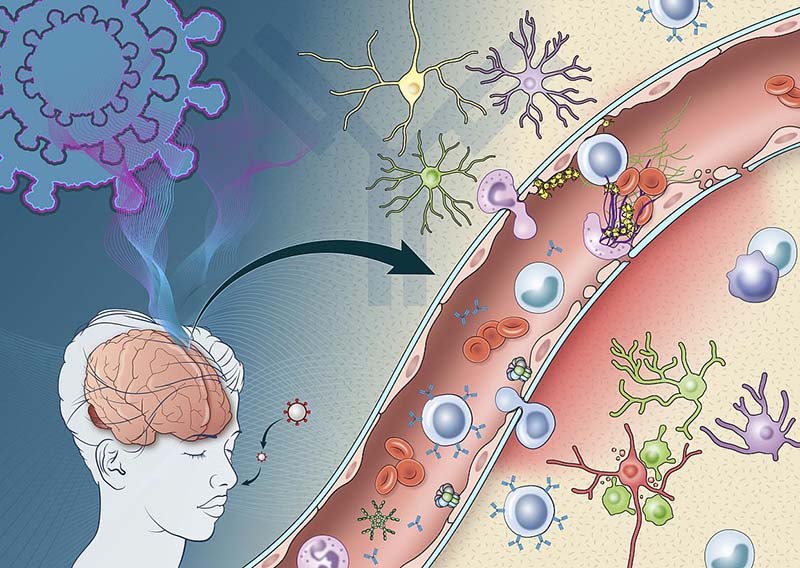Small NIH study reveals how immune response triggered by COVID-19 may damage the brain
Findings could give insight into long-term neurological symptoms of COVID-19
A study from the National Institutes of Health describes the immune response triggered by COVID-19 infection that damages the brain’s blood vessels and may lead to short- and long-term neurological symptoms. In a study published in Brain, researchers from the National Institute of Neurological Disorders and Stroke (NINDS) examined brain changes in nine people who died suddenly after contracting the virus.
The scientists found evidence that antibodies — proteins produced by the immune system in response to viruses and other invaders — are involved in an attack on the cells lining the brain’s blood vessels, leading to inflammation and damage. Consistent with an earlier study from the group, SARS-CoV-2 was not detected in the patients’ brains, suggesting the virus was not infecting the brain directly.
Understanding how SARS-CoV-2 can trigger brain damage may help inform development of therapies for COVID-19 patients who have lingering neurological symptoms.
“Patients often develop neurological complications with COVID-19, but the underlying pathophysiological process is not well understood,” said Avindra Nath, M.D., clinical director at NINDS and the senior author of the study. “We had previously shown blood vessel damage and inflammation in patients’ brains at autopsy, but we didn’t understand the cause of the damage. I think in this paper we’ve gained important insight into the cascade of events.”

SARS-CoV-2 infection can trigger the production of immune molecules that damage cells lining blood vessels in the brain, causing platelets to stick together and form clots. Blood proteins also leak from the blood vessels, leading to inflammation and the destruction of neurons.
This page was last updated on Wednesday, July 27, 2022